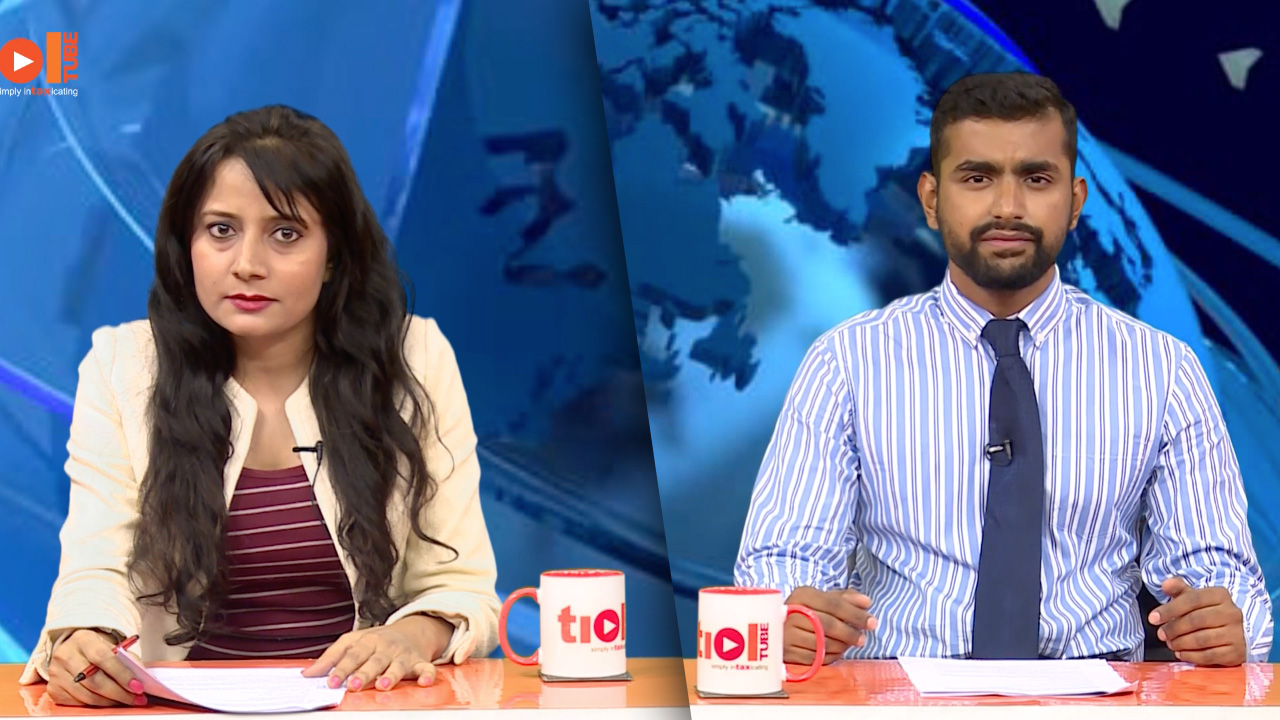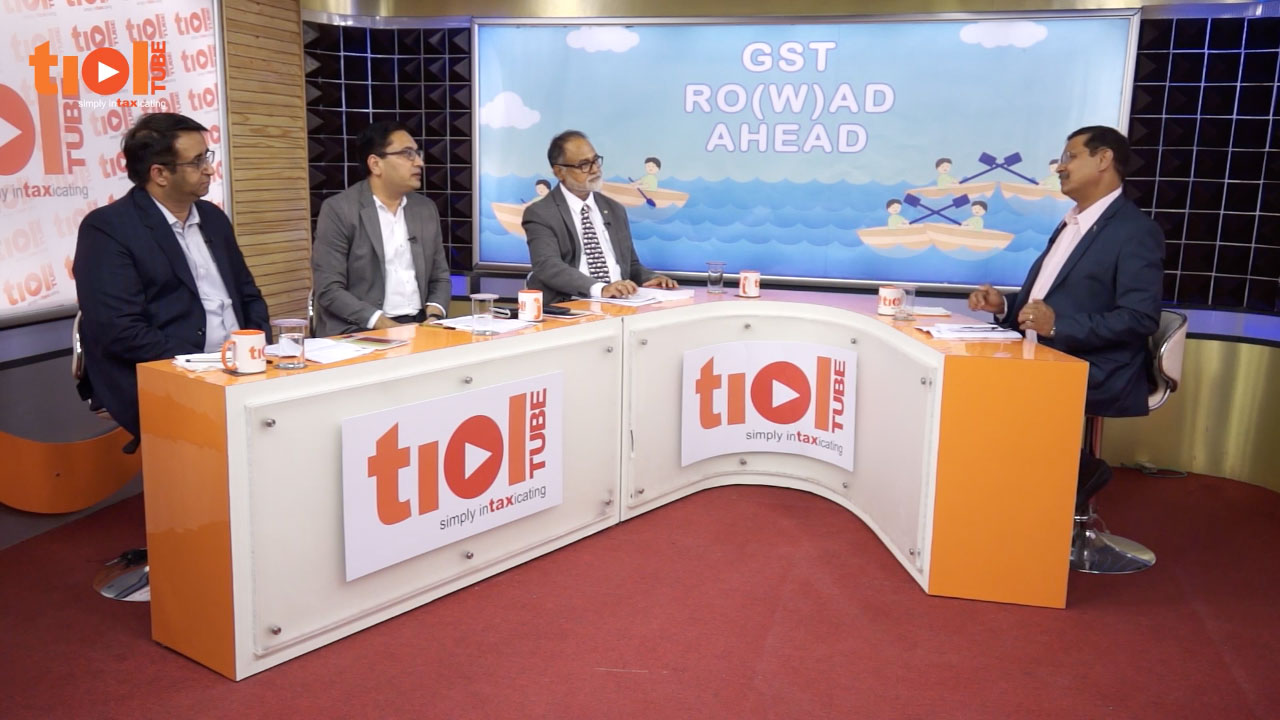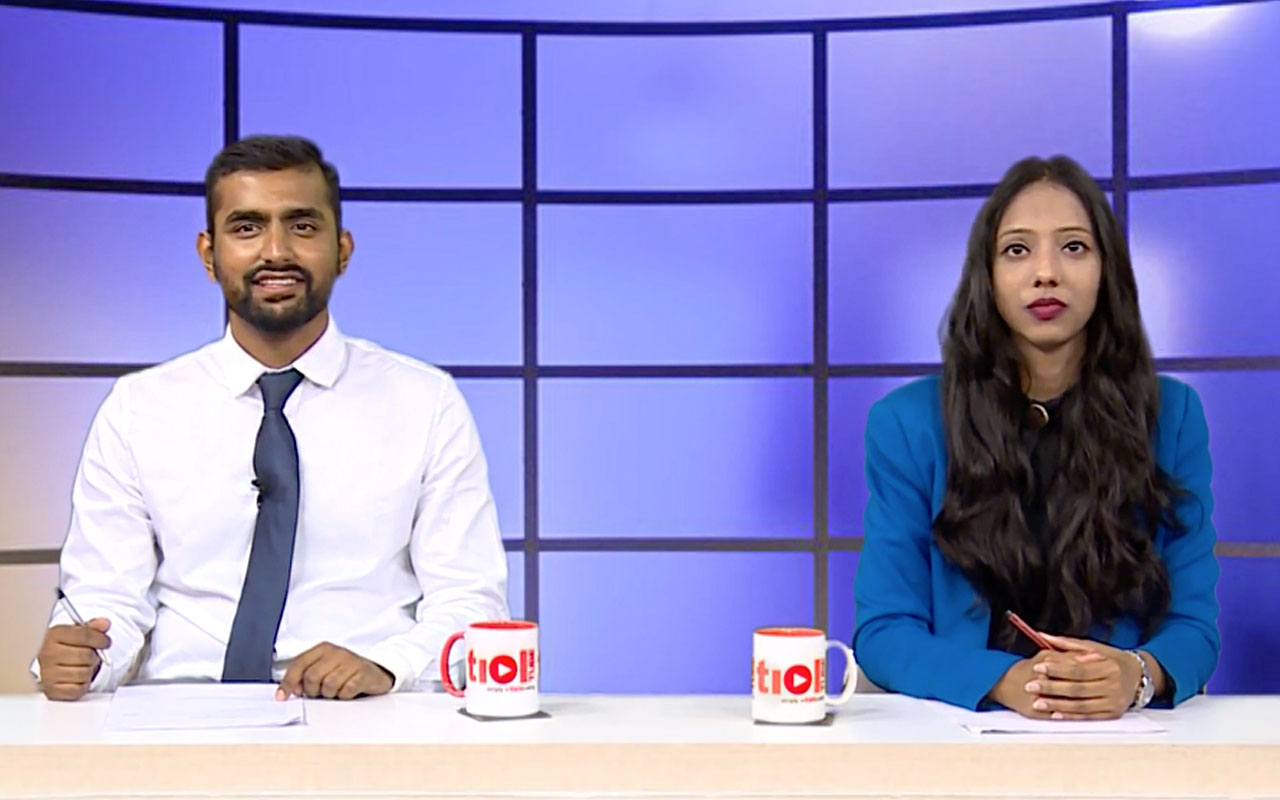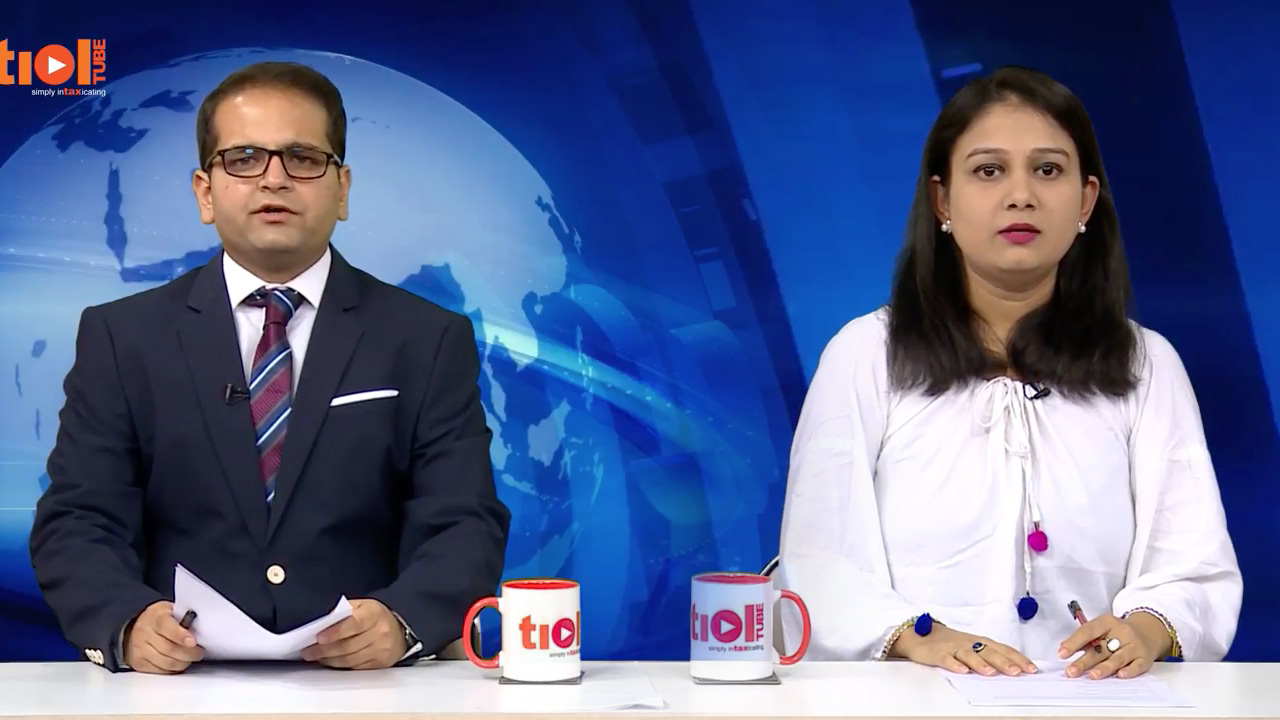SERVICE TAX
2018-TIOL-3120-CESTAT-MAD Aspinwall and Compant Ltd Vs JCST
ST - The assessee provided services related to import & export of goods through the Chennai Port - Based on intelligence inputs received from the DGCEI, it was alleged that the assessee did not include the value of all services provided & received while paying service tax under categories such as Port Services, Cargo Handling Services & Goods Transport Agency services - Duty demands were raised with interest & penalties u/s 76 & 78 - The Commr.(A) later set aside the penalty imposed u/s 76.
Held - The services provided by the assessee would not classify as CHA service but would instead classify as Port Services, considering the decision of the Tribunal in the assessee's own case in Aspinwall & Co. Ltd. Vs. Commissioner of Central Excise - Regarding the duty demanded under Cargo Handling Service in respect of raw sugar, it is clear that raw sugar is outside the purview of agricultural produce - As raw sugar undergoes processing, no exemption can be extended to it - Hence the Cargo Handling Services would attract levy of service tax - Regarding the demand on GTA services in respect of raw sugar, the same is not contested - However the penalties u/s 78 must be set aside, considering that the Department could not establish any deliberate intent to evade payment of service tax or suppression of facts - Thus demands under Port Service are set aside while demands under Cargo Handling Services & Goods Transport Agency Services in respect of raw sugar are sustained: CESTAT (Para 1,5.2-6)
- Assessee's appeal partly allowed: CHENNAI CESTAT
2018-TIOL-3119-CESTAT-MAD
CCE Vs ST John Freight Systems Ltd
ST - The assessee provides CHA service, Port Services, Technical Inspection & Certification Services - Based on intelligence inputs, the DGCEI alleged that the assessee short paid service tax on CHA service since the assessee did not include the reimbursable expenses incurred on behalf of the clients - Also that certain amounts in the name of DEEC endorsement charges, DEPB License Verification Charges had not been included - The assessee was also charged with having collected re-imburseable charges over & above the actual expenses - The Department further alleged that the assessee did not pay service tax on the brokerage from the liners towards arranging of cargo for shipment, incentive from CFS towards providing customers containers for storage, commission from the airlines towards Air Freight Forwarding of Goods and delivery order fees received from the clients for imports - It claimed that the same was taxable as Business Auxiliary service - Lastly, the Department claimed that the assessee erroneously availed credit on of service tax paid in respect of services provided by the liners, containers, freight stations and surveyors arranged for and on behalf of the clients and not directly used by the assessee - Duty demands were raised with interest & penalty - Later the Commr.(A) set aside the demand raised under extended limitation & also the demand raised under BAS - Hence the present appeals by both the assessee as well as the Department.
Held - The demand under BAS has correctly been dropped by following the findings in Lee & Muir Head Pvt. Ltd Vs. C.S.T - Besides, the dropping of demand raised under extended limitation is sustainable as the assessee disclosed the relevant details in the ST-3 returns - Hence there is nothing to suggest that the assessee suppressed facts with intent to evade payment of duty - Regarding issue of re-imbursable expenses, it is seen that the assessee did not collect them in most cases - Hence the same warrants remand for fresh consideration, considering the decision of the Apex Court in Union of India v. Intercontinental Consultants & Technocrats Pvt. Ltd. - The Department's appeal is dismissed: CESTAT (Para 1.1-1.4,5.1-5.5)
- Revenue's appeal dismissed: CHENNAI CESTAT
2018-TIOL-3118-CESTAT-MAD
CST Vs Supply Chain Logistics Pvt Ltd
ST - The assessee provided services relating to freight forwarding - It booked space for the cargo & thus procured cargo space from the shipping lines at specified agreed rates - The space booked was used to forward the client's cargo - The assessee collected higher freight charges than the amount paid to the shipping lines - The assessee charged the mark up of the amount paid to the shipping lines - The Department opined that such activity classified as Business Auxiliary Service - Duty demands were raised with interest & penalties were imposed - Moreover, the Adjudicating authority excluded the freight charges and the tax was levied only on the mark up value/excess freight collected by the assessee - The Department claimed that the entire amount would be taxable since the activity in question fell under managing logistics and distribution services - Hence the Department's appeal - The assessee contested the duty demand, interest & penalty.
Held: It is seen that for booking of cargo space the assessee received a small incentive over & above the freight charges from the shipping liners - Considering the decision of the Tribunal in Greenwich Meridian Logistics (I) Pvt. Ltd. vs Commr. Of S.T and Phoenix International Freight Services Pvt. Ltd. vs C.S.T & DHL Lemiur Logistics Pvt. Ltd. vs. Commissioner it is seen that the activities which has been considered in these decisions will not attract service tax: CESTAT (Para 2,6,9)
- Department's appeal dismissed: CHENNAI CESTAT
CENTRAL EXCISE
2018-TIOL-2179-HC-MUM-CX
Oerlikon Friction Systems (India) Ltd Vs UoI
CX - This petition under Article 226 of Constitution of India seeks a direction to the Commissioner of CGST to keep in abeyance the SCN dated 10th October, 2017 issued under CEA, 1944 - This request is made on the ground that in petitioner's own case, an identical issue relating valuation of job work is pending before Tribunal at Chennai - In any case it is entirely for the Commissioner who has to adjudicate upon SCN to decide whether or not to adjourn the adjudication of the SCN till the decision is rendered in what the petitioner states is a similar / identical issue pending before the Tribunal at Chennai to that raised in SCN - This discretion has to be exercised by the adjudicating Authority taking into account all the facts which arise before him for adjudication in the SCN and in the interest of over all justice - Thus, it is not for the court in a writ jurisdiction to micro manage the manner in which adjudication proceedings should be conducted by the quasi judicial authority, unless of course the conduct of the proceedings by a quasi judicial authority is completely arbitrary causing serious prejudice to the parties - This certainly is not a case which would require interference in exercise of our extraordinary jurisdiction under Article 226 of Constitution of India: HC
- Petition dismissed : BOMBAY HIGH COURT
2018-TIOL-3123-CESTAT-DEL VE Commercial Vehicles Ltd Vs CST
CX - The assessee is engaged in manufacture of light, medium & heavy types of commercial vehicles - It availed services of other companies for logistic & business support in the form of transportation of vehicles - The assessee availed Cenvat credit on the service tax which had been paid for such services under the head 'Support service for business' - The Department challenged such availment of credit - Duty demand was raised seeking reversal of the credit along with imposition of penalty u/s 11AC r/w Rule 15 of CCR 2004 - The Tribunal later remanded the matter - On remand proceedings, the Department only allowed part of the credit availed - It was also noted that as the assessee availed credit before payment of service tax, the provisions of Rule 4(vii) of CCR 2004 had been contravened - A part of such credit was also disallowed on grounds that the credit had been availed based on a letter - Hence penalty was imposed u/s 11AC r/w Rule 15(ii) of CCR 2004.
Held: It is seen that though the credits might have been availed in the books of accounts their actually utilization have only started after the month of October, 2007 & before that the assessee already paid service tax - Thus, there has been no utilization of Cenvat credit without payment of service tax - Regarding availment of credit based on a letter, it is seen that the documents bears all details such as service provider, service recipient, value of service & service tax amount paid - Although such letter is not listed in provisions of proviso to Rule 9(2), it nonetheless contains all the details - Thus credit cannot be denied as the requisite particulars have been mentioned & the same amounts to denial of credit on technical or procedural lapses - Hence the O-i-O in challenge is unsustainable: CESTAT (Para 1,2,11-17)
- Assessee's appeal allowed: DELHI CESTAT
2018-TIOL-3122-CESTAT-BANG
Volvo India Pvt Ltd Vs CCE & ST
CX - Assessee is manufacturer and seller of automobiles; they import the spare parts and keep them, store them at Central Warehouse (CWH), Hoskote and utilize the same for servicing or sales at their respective service centres w.e.f. 01.06.2006 repacking and relabelling of automobile parts amounted to manufacture in terms of Section 2(f)(iii) of CEA, 1944 - SCN was issued alleging that assessee have availed credit of duty paid on goods received in their premises as on 01.06.2006 whereas the assessee, having registered themselves on 04.05.2007, are only eligible to avail credit of goods received by them on or after 04.05.2007 - As far as this part is concerned it is clear that Commissioner has accepted the contention of assessee as far as the admissibility of credit availed by them on inputs available on date of coming in to effect of the provisions of deemed manufacture - Further, the Commissioner has also observed that there is no time limit prescribed under CENVAT Credit Rules for availment of Credit - However, the authority further proceeded to decide the eligibility on factors that were not the part of SCN - To this extent, Commissioner has certainly traversed beyond the scope of SCN - On this issue, impugned order is not maintainable - Having dealt the issue from the issue of substantial compliance, having held that the registration itself is a procedural requirement and stock transfer invoice a duty paying document the Commissioner could have got the issue examined in totality from CWH and further transfer to various service centres before denying the credit - For a proper appreciation of the issue and for qualification of credit admissible, matter remanded to the jurisdictional authority who shall allow the credit on verifying the records at CWH and transfer to various service centres in totality, within 3 months of submission of records and evidence to that effect by assessee - Under such circumstances, penalties levied therein are not maintainable; therefore, they are set aside.
At the end of the Audit they have issued an audit note - One of the issues raised therein was pertaining to non payment of duty on goods cleared from service centres consequent to the issue of Notfn 12/2006 - The conclusion drawn on the objection was that since the assessee have paid duty along with interest before issue of SCN, no further action is proposed as envisaged under Section 11(2B) of CEA, 1944 - The only condition under which the provision of this section could be denied to assessee was non-payment of duty by reason of fraud, collusion, suppression of fact, wilful misstatement - These ingredients were not established either in SCN or the impugned order - Therefore, it was not open to the department to go beyond the proposition in the Audit Note: CESTAT
- Matter remanded: BANGALORE CESTAT
2018-TIOL-3121-CESTAT-AHM
Welspun Corpn Ltd Vs CCE & ST
CX - The assessee is engaged in manufacture of steel pipes - They have availed a Cenvat credit in respect of various services namely car hiring, aircraft hiring, subscription to membership charges, online information & database access service, training service, advertisement & publicity service - The assessee was denied the credit on the ground that input services in question do not have nexus with their manufacturing activity - As regard aircraft hiring services, it was a submission of assessee that the aircraft is used for travelling of the office staff for official use from Bombay where the office is situated to Kandla, where the factory is located and back to Bombay - Therefore it is not for personal use - If it is found from the assessee's records that the services were used for assessee's company and the expenses were borne by them as per the books of the account,the credit is admissible - As regard the subscription to membership charges, the subscription is in respect of associations such as the Chambers of Commerce and Indian Business Council - Subscription of these associations and Chambers are only for the purpose of business of the assessee - This issue of credit in respect of Business subscription has been considered by this Tribunal in many cases and in respect of all the business associations subscription was held as admissible input service, and the credit was allowed - Therefore, following the judgements of Reliance Industries Ltd. 2016-TIOL-2392-CESTAT-MUM , credit in respect of Subscription is admissible to the assessee and the same is allowed - As regard to other services namely online information and database access service, training services and advertisement service and publicity services, all these three services are specifically in the inclusion clause of definition of input services - Therefore, in respect of services which are included in inclusion clause, the assessee need not to establish nexus - Accordingly, the credit is admissible on these services - The issue relates to services of Aircraft and car hiring services, matter is remanded to the adjudicating authority to decide after verifying the books of accounts of the assessee and in respect of other services, credit is allowed: CESTAT
- Appeal partly allowed: AHMEDABAD CESTAT
CUSTOMS
2018-TIOL-2180-HC-MUM-CUS
CC Vs Bhupinder Singh
Cus - This Appeal under Section 130 of Customs Act, 1962 challenges the common order dated 28th July 2017 passed by Tribunal - It is common order passed in case of Shri. Ravinder Singh, Shri. Kanwalpreet Singh and the Appellant herein - Issue arising herein stands concluded against the Revenue and in favour of assessee by the order of this Court in Shri Ravinder Singh - The above appeal of Revenue in case of Shri. Ravinder Singh was dismissed - Therefore, for the reasons indicated in order dated 25th September 2018 in Ravinder Singh , the question as proposed in the present facts does not give rise to any substantial question of law, thus, not entertained: HC
- Appeal dismissed : BOMBAY HIGH COURT
2018-TIOL-3126-CESTAT-MAD + Case Story
BMW India Pvt Ltd Vs CC
Cus - Notification 21/2011-Cus., 31/2011-Cus., 12/2012-Cus. - Only those CKD kits where all the parts and components including engine/gearbox and transmission assembly are imported in a completely knocked down condition, will benefit from the lowest rate of 10% BCD - if the imported automobile CKD kit has the engine or gearbox or transmission in preassembled condition, the entire kit will not get the benefit 10% BCD under entry 344(1)(a) but will have to suffer 30% BCD under entry 344(1)(b) - There is also no caveat in the Notification that non-inclusion of such "Add-on parts" would have the effect of treating the otherwise pre-assembled engine/transmission mechanism/gearbox as "not" pre-assembled - intention of the legislature, which obviously is to extend the lowest concessional rate to the highest level of "knocked down parts" - Both, for the periods 01.03.2011 to 23.03.2011 as also 24.03.2011 to 11.04.2013, the appellants are not entitled to a rate of B.C.D. @ 10% but will necessarily have to discharge B.C.D @ 60% and 30% respectively only - even if there had been an ambiguity in the Notifications No.31/2011-Cus. and No.12/2012-Cus. as claimed by appellant, the benefit cannot be claimed by the appellant-importer BMW and as laid down by the Apex Court in Commissioner of Customs (Import) Mumbai Vs Dilip Kumar and Company & Ors. = 2018-TIOL-302-SC-CUS-CB , the same must be interpreted in favour of the Revenue -however, extended period of limitation cannot be invoked as facts were in the knowledge of the department - For this limited purpose, the matter would be required to be remanded to the adjudicating authority to work out the duty liability afresh limited to the normal period of limitation: CESTAT [para 23, 24, 26, 30, 42, 43, 45, 46, 47, 49, 51]
Cus - Penalty - s.114A of the Customs Act, 1982 - section 112(a) of CA, 1962 - For the very reason that ingredients justifying invocation of extended period not being present in this case, further also taking into account that the issue per se revolves around interpretation of the notification which itself underwent a number of changes, held that the penalty under Section 114A of the Customs Act, 1962 is not just and fair and is, therefore, set aside - Penalty of Rs.3 crores imposed u/s 112(a) is on the higher side and hence reduced to Rs.1 crore and same would merit the interest of justice: CESTAT [para 52, 54]
Cus - Confiscation, Redemption fine - As there has been definite contravention of Section 111 (m) and (o) of the Customs Act, 1962, the confiscation ordered by the adjudicating authority is upheld - However, the redemption fine is reduced to Rs.1,00,00,000/-: CESTAT [para 53]
- Appeal partly allowed/partly remanded: CHENNAI CESTAT
2018-TIOL-3125-CESTAT-AHM
TPL Plastech Ltd Vs CC
Cus - The assessee imported some material which was later found to be unfit to receive benefit of Notfn No 21/2002 - The Revenue alleged that the assessee mis-declared the goods - Duty demand was raised with interest & the goods were seized - The goods were provisionally released but then held liable for confiscation and redemption fine was imposed - The O-I-O also directed encashment of bank guarantee given by the assessee upon provisional release of the goods - Upon filing appeal before the Tribunal, the assessee deposited 7.5% of the duty demanded - Thus the present application was filed seeking to restrain the Revenue from encashing the bank guarantee.
Held - Considering the provisions of Section 129E, it is seen that the section does not stay or restrict the rights of the Revenue to recover to recover some amount - It only prescribes payments of some amounts as conditions mandatory for filing appeal in Tribunal - But such powers were somewhat curtailed vide the circular no. 984/8/2014/CUS dated 16/09/2018 - It may also be noted that redemption is an option exercised by the assessee & it is not mandatory - If exercised, liability to pay redemption fine arises even if pre-deposit is made u/s 129E of the Customs Act - Hence the encashment of bank guarantee cannot be interfered with as the assessee filed no stay application in this matter: CESTAT (Para 2,6-14)
- Assessee's application dismissed: AHMEDABAD CESTAT
2018-TIOL-3124-CESTAT-MAD
Shree Rama Coffee Works Vs CC
Cus - The issue in this case is the classification of imported coffee roasting machine; assessee sought to classify it under CTH 85167990 claiming benefit of exemption under S.No. 252 (A), S.No. 2 of list 32 (A) of Customs Notfn 21/2002 - However, the Department has denied the classification and exemption thereby and classified the coffee roasting machine under CTH 84198190 - Commissioner (A) has held that the coffee roasting units using gas as the heating medium is specifically covered under Heading 84.19 - The main process of Heading is done by gas in case of impugned machines, they are ruled out from the Heading 8516 - Tribunal is not inclined to accept the contentions of assessee that since electricity is used for rotating cylinder, the machine be treated as electric machine - What is important is to see the source of energy for the main function of the machines - The impugned machine is gas-fired for the main function of roasting and therefore, as per the construction of the tariff Heading 8419, coffee beans being agricultural products used for heating or roasting of coffee beans finds merits classification under CTH 84193100 - Therefore, no reason found to interfere with order of Commissioner (A) - In order to avail the exemption Notification both the conditions under to be satisfied as there is no ambiguity in the wording of the Notification - The lower authority cannot interpret the Notification in a piecemeal manner and to say that the exemption is available to coffee roasting machine intended for industrial use even if they do not fall under the tariff Heading mentioned therein - Classification of an imported item should depend on its description and nature in terms of relevant section or chapter notes of CTA, 1975 rather than the words of Notification - The classification of the coffee roasting machine under CTH 84193100 of Customs Tariff Act is upheld: CESTAT
- Appeals rejected: CHENNAI CESTAT
|









